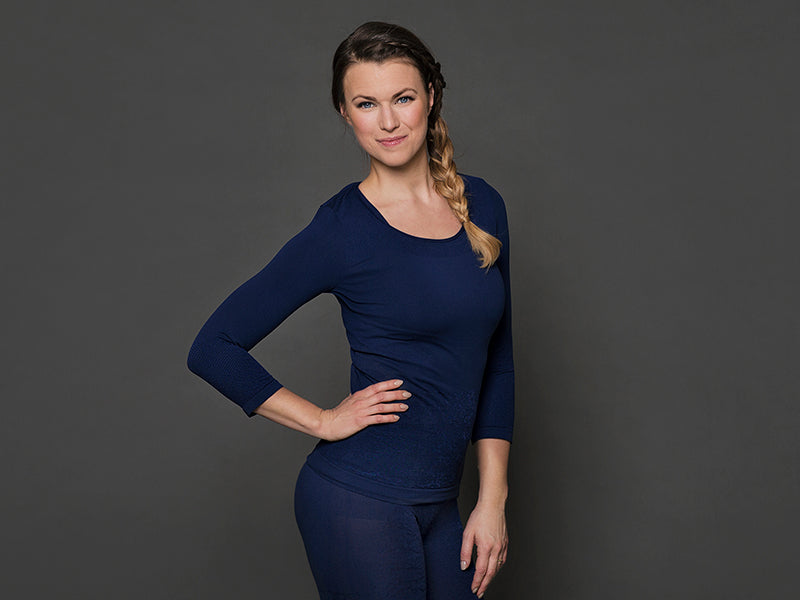
CAN YOU LOSE 20 pounds IN 12 WEEKS
- MY HONEST ANSWER AND 3 STRATEGIES FOR SUCCESS
The answer is YES. And NO.
And "it depends..."
I wish I could answer more precisely. But your body is not an equation.
Of course you can lose weight as fast as 20 pounds in 12 weeks.
You may have already succeeded before, maybe even several times - or know someone who has. You "just" need to take in less than you burn.
But you've probably also experienced that the pounds come back on. Even faster than you lost them! And it will be harder to lose weight next time.
The brain can still cheat and whisper: "Hey, you just need to do what worked last time when you lost weight quickly. Just be more determined this time so you don't gain weight again".
And then you experience resistance... and get tired before you even get started... But you know what? That's not your lazy side talking. It's your physiology and neurology remembering what happened last time.
The last time you cut calories and maybe even carbs. And maybe even ramped up your workout to get your heart rate up and your sweat out.
Here's what happened last time:

Search 'Minnesota Starvation Experiment' on Google if you want to know more.
In this experiment, a group of participants who normally ate just over 3000 calories a day were told to eat half that - about 1500 calories a day for 20 weeks (which, by the way, is what diet books tell you to eat to lose weight - if not less!)
Participants experienced:
- Feeling cold, constant hunger, exhaustion, dizziness, muscle loss, hair loss, weakness, reduced heart volume, lower blood pressure and a resting metabolic rate reduced by 40%.
- Food obsession, lack of interest in anything but food, binge eating, depression, lack of sex drive, isolation and avoidance of social activities.
IT'S MUSCLE MASS YOU LOSE
Check out the graph to see how the weight returns to previous set-points, while the fat percentage creeps up significantly higher than before the diet!
Which means a big loss in muscle mass and probably also bone mass.
(Muscle loss can be difficult to directly relate to, other than becoming flabbier and softer. Everything feels harder, even everyday activities.)
The significantly reduced metabolism - both resting metabolic rate and equilibrium intake - manifests itself in faster weight gain and bulging.
Poorer odds of various diseases may seem abstract, but nevertheless, your muscle mass plays a key role in immune function, prevention of lifestyle diseases and survival rates for more serious diseases.
Accelerated osteoporosis (osteoporosis) is probably not on anyone's wish list either - but it's hardly something many people think about when they just want to lose a few pounds. And preferably yesterday.
But I do have that knowledge. And it's enough for me to NEVER create a course or programme that can have such serious consequences for your health in the long run.
This means that:
NO. I will NOT sit down with a calculator and figure out how much of a calorie deficit you need to be in per week to reach your goal in 12 weeks. Even if I did, it wouldn't fit the formula in the end.
Because your body will slow down or sabotage you in other ways along the way.
Injuries. Aches and pains. Colds. Cravings and overeating. Exhaustion. Unwillingness.
"BUT HOW QUICKLY CAN I LOSE THOSE 20 pounds?"
If you're reading this, chances are you've been through the weight loss carousel more than once before.
This means that your body has long since stopped behaving according to the usual formula. And that means it's going to take something else to crack the code for you.
And I help women do that every single day. So let me share my experience with you and answer the question:
"How fast can I LOSE those 20 pounds?"
FIRSTLY:
It depends on whether you really need to lose 20 pounds to look the way you want to look.
Most people are surprised to find that they need to learn how to keep their weight stable while remodelling their figure (but fortunately, it's much easier to achieve and maintain a strong, tight body year after year than a thin body).
The difference in these before-and-now photos is + (PLUS!) 5 pounds from the starting weight. But several sizes down. And a stable shape that just keeps getting tighter.


However, in order to succeed with a complete body transformation that is easy to maintain, you MUST let go of a certain expectation of the number on the scale.
Look at the pictures. They don't lie, go by how you FEEL.
Because the way to a more beautiful, tighter, stronger, leaner body is NOT through suffering. Quite the opposite!
SECOND:
If you are overweight and really need to lose weight, it may still not be as much as you think.
But leave that aside for a moment and see how long it would take you. It depends on whether your brain is in "fat storage mode" right now.
If it is, and you see the weight steadily increasing, then you need to stop that development first. And that can take some time and effort, especially if your body is living its own life at full speed in the wrong direction...
So, when you start losing weight depends on how long your body has been practising gaining weight. That development must be reversed first.
And during that period, there will probably be minimal, if not ZERO, change in the weight itself. But that's not the same as nothing happening.
With the right plan and a focus on effort rather than results in the first period, a LOT will happen. Inside first.
Then, once you've slowed down the train and gotten back on the right track. You can start gaining momentum in the right direction.
THIRDLY:
Even if you're physiologically doing everything by the book... you can only succeed with weight loss (and/or remodelling) in both the short and long term when you consistently do something different from what you normally do.
Even when everyday life hits.
Because your body reflects the set of habits you've accumulated so far. Habits that are particularly strong when you're under pressure. So you don't just need a great diet and exercise plan that you can follow - and voila, you've reached your goal.
You also need a damage control plan. A plan to get you back on track. One that you can practise pulling out of your sleeve when you go astray.
Because you WILL go off track. We all will. But equipped with the right strategies and such a "first aid plan", it will happen less often - and to a lesser extent.
mini overturned train
And you'll get back on track faster every time. Just remember that it's also part of your timing. Getting off the track - and back on the track - also takes time.
So whether you reach your 'goal' in 12 weeks - or more - depends on how many times you need to make adjustments along the way.
Be realistic and plan on the basis that there WILL be delays on your journey. Just like when there's snow and ice on the roads out there.








